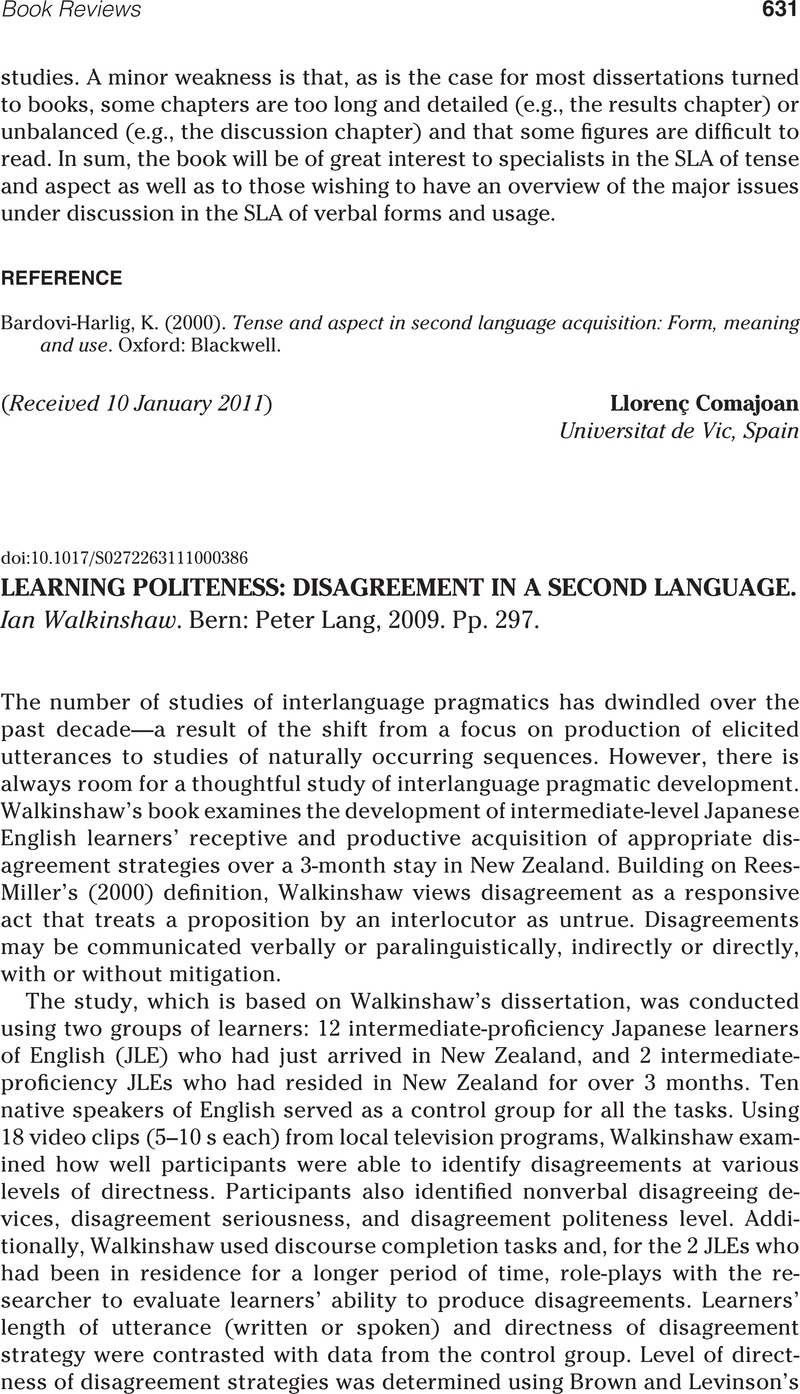No CrossRef data available.
Article contents
LEARNING POLITENESS: DISAGREEMENT IN A SECOND LANGUAGE.Ian Walkinshaw. Bern: Peter Lang, 2009. Pp. 297.
Published online by Cambridge University Press: 15 November 2011
Abstract
An abstract is not available for this content so a preview has been provided. Please use the Get access link above for information on how to access this content.

- Type
- Book Reviews
- Information
- Copyright
- Copyright © Cambridge University Press 2011
References
REFERENCES
Brown, P., & Levinson, S. (1978). Universals in language usage: Politeness phenomena. In Goody, E. (Ed.), Questions and politeness: Strategies in social interaction (pp. 56–289). New York: Cambridge University Press.Google Scholar
Rees-Miller, J. (2000). Power, severity and context in disagreement. Journal of Pragmatics, 32, 1087–1111.CrossRefGoogle Scholar
Scott, S. (2002). Linguistic feature variation within disagreements. Text, 22, 301–329.Google Scholar


